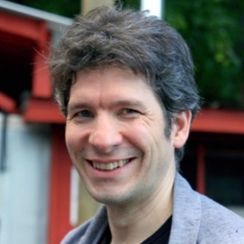A corpus-based perspective on the US presidential election through a FireAnt analysis of candidates' social network interactions
- Location
- Metallurgy and Materials Lecture Theatre GC17
- Dates
- Friday 4 November 2016 (13:00-14:00)
 Professor Laurence Anthony
Professor Laurence Anthony
- Speaker: Professor Laurence Anthony (Waseda University, Japan)
- Venue: Room GC17, Metallurgy and Materials Building
Abstract
An analysis of the language of social networks can provide linguists, applied linguists, and social scientists with new insights into the ways in which language impacts on the world at large. However, extracting data from social networks is a complex process requiring knowledge of network authentication and verification procedures, database storage systems, search protocols, as well as statistics and visualization techniques. As a result, to date, many researchers interested in analyzing social network data have relied on advanced database architectures and custom scripts written in programming languages such as Python or R to carry out these analyses. With the aim of lowering the barrier to carrying out social network analyses, this presentation introduces a new, easy-to-use, portable corpus analysis tool called FireAnt that enables any novice or advanced computer user to collect, analyze, and visualize the language of social networks without any prior knowledge of databases or programming. To demonstrate the utility of FireAnt, I will first show how the tool can be used to quickly and easily collect Twitter data from the social networks of the candidates in the 2016 US presidential election. I will then show how the tool can extract language data from those networks and identify and visualize the degree to which the candidates and their networks of supporters project positive or negative sentiments.
Short Biography
Laurence Anthony is Professor of Applied Linguistics at the Faculty of Science and Engineering, Waseda University, Japan. He is a former Director and current Program Coordinator of the Center for English Language Education in Science and Engineering (CELESE). His main interests are in corpus linguistics, educational technology, and English for Specific Purposes (ESP) program design and teaching methodologies. He received the National Prize of the Japan Association for English Corpus Studies (JAECS) in 2012 for his work in corpus software tools design.